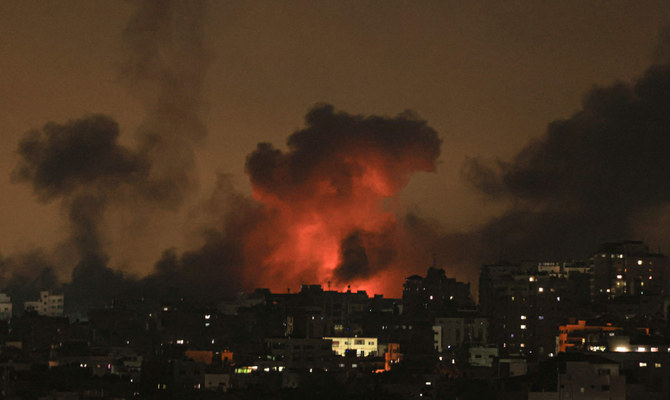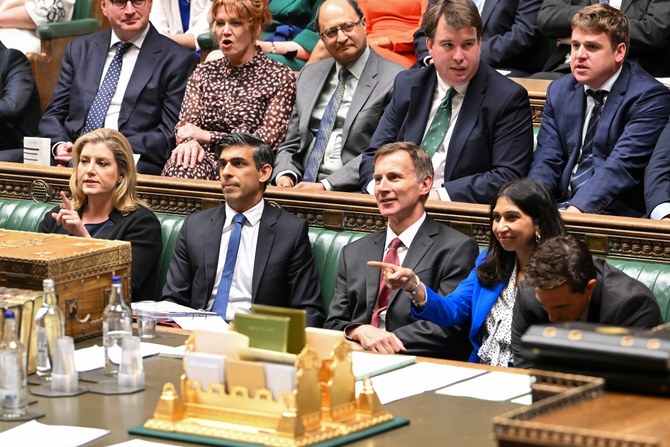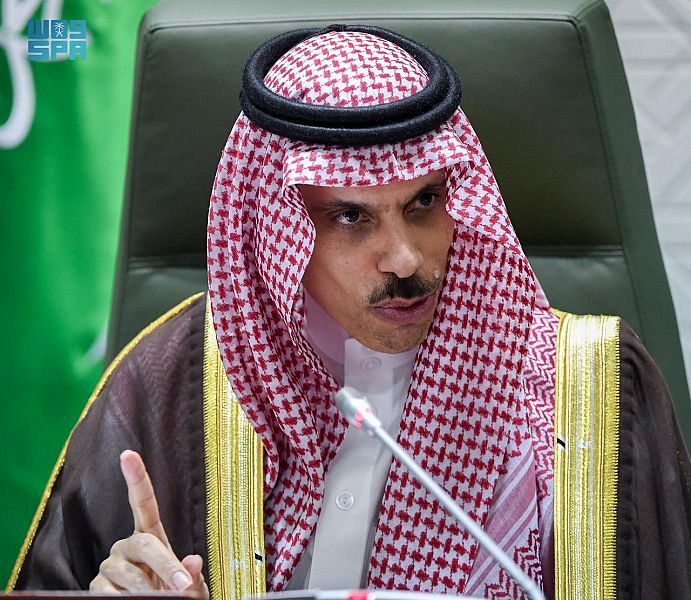
The world was taken by surprise by the Hamas attack on Israel. No one was expecting this level of sophistication from the militant group. We still do not know how events will unfold, but we know one thing — the status quo that existed before the operation is not sustainable anymore.
Former US National Security Adviser H.R. McMaster tweeted that Israel should use the occasion to “crush” Hamas. Supposing that this was executable, what would happen next? New York Times columnist Thomas Friedman spoke of the need for Israel to restore its deterrence. Again, supposing this was feasible, what would come next? Going back to the situation prior to the operation does not look possible.
If anything, “Al-Aqsa Flood” has shown us that Israeli policies are not sustainable. The expansion of settlements, the occupation, the daily subjugation of Palestinians and the provocations at sacred sites do not work. The former head of Dubai police Dhahi Khalfan posted on his X account a video of a Palestinian child being brutalized by Israeli soldiers. He commented: “What do you expect from these children when they become young men?”
Israel’s goal has been to maintain the status quo, the occupation. Israel is not ready to accept a Palestinian state or to recognize the Palestinian right to statehood. At the same time, it does not want to give them citizenship. This would mean that Israel would lose its Jewish majority. These options represent tough choices for Israel — renouncing the land that many Israelis perceive was given to them by God or losing the Jewish character of the state.
To escape this dilemma, the safest political choice was to maintain the status quo, the occupation, while sweet-talking the international community about its intention to eventually accept the two-state solution. People blame Benjamin Netanyahu for expanding the settlements; however, settlements have expanded under every single Israeli government, even during the Oslo process. Though Netanyahu has been more vocal and his government more racist, his policies are merely a continuation of previous governments’ policies.
However, the Hamas operation has now broken that status quo. Israel needs to face reality — its policies have not worked. The other fact that this operation has revealed is that Israel is vulnerable and its enemies are beefing up their capabilities. The “edge,” whether military or technological, that we used to hear about is no longer as obvious as it was before. And we are talking here about Hamas, not Hezbollah, which is far more sophisticated.
Does Israel want to try its luck? This might have the opposite effect to what is intended. While Israel wants to reestablish deterrence and show the Palestinians who is the boss, it might expose its vulnerability as well as its brutality. We have to remember the war on Lebanon in 2006. Initially, the international community stood with Israel and its “right to defend itself” following the kidnapping of two soldiers on the Blue Line. However, after civilian casualties started amassing on the Lebanese side, international opinion changed and people started asking for a ceasefire.
International support for Israel is likely to erode once Netanyahu executes his ‘vengeance’ and turns Gaza into ‘rubble.’
Dr. Dania Koleilat Khatib
So, although the international community is currently supporting Israel, this support is likely to erode once Netanyahu executes his “vengeance” and turns Gaza into “rubble.” Unlike before, when Palestinians were unequivocally accused of terrorism, today the mainstream media features pro-Palestinian commentators who are speaking about the root cause of the problem — illegal occupation.
Also, Israel should not underestimate the Palestinian people’s resilience. I spoke to my Gazan friend following the Hamas operation and she told me that even she was shocked by her family’s determination. She told me they are not afraid. They know they could be bombed at any time, so why would a new Israeli assault be any different? Hence, continuing the military operation would not really be in Israel’s interest, especially now that the country is more fractured than ever before.
To save his skin, Netanyahu would need to give his people something, but a total victory is not possible. For the Palestinians, it is do or die and they will not give up easily. Hamas leader Ismail Haniyeh has already spoken about the “battle” extending to the West Bank and Jerusalem. Does Israel want a situation it cannot control?
Now is the time to relaunch the Arab Peace Initiative. The Arab League, under the leadership of Saudi Arabia, should do so. Inside Israel, it is the time to rally round the flag, but the average Israeli can see that there is no end to this mess. This is the time to avert all-out war in the region, in which Israel would ultimately not be a winner. The Arab Peace Initiative should be promoted extensively to the Israeli public. In parallel, the Arab League should lobby for it with the UN, EU, NATO, the US and in capitals around the world.
Of course, Israel will have its reservations and concerns, particularly regarding Iranian support for Palestinian factions. This is where the current rapprochement with Iran can be used to discuss the matter. However, it is important for Arab states to push for the Arab peace plan. Now is the time that the idea can capture the attention of the world. It should be presented as the solution that will end these periodic confrontations, which are getting bloodier with every new episode.
Despite the narrative, the US knows that Israel is vulnerable and is facing grave threats that will not be extinguished by a land operation or by “obliterating Hamas’ terror infrastructure,” as some have suggested. The Arab Peace Initiative is the only viable endgame for everyone.
• Dr. Dania Koleilat Khatib is a specialist in US-Arab relations with a focus on lobbying. She is president of the Research Center for Cooperation and Peace Building, a Lebanese nongovernmental organization focused on Track II.












